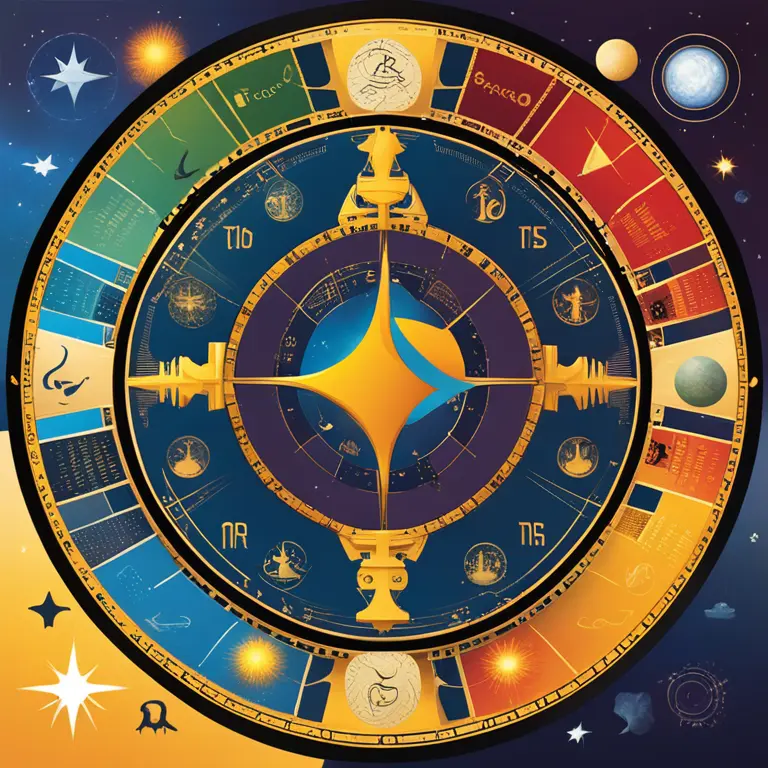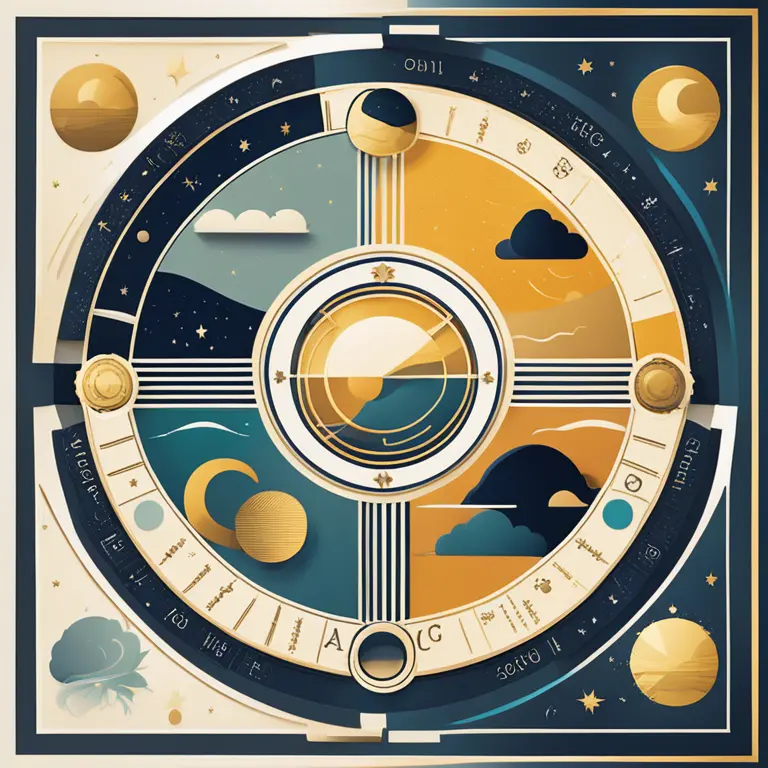
Astrology vs Zodiac: Clarifying the Concepts
Discover the differences and connections between astrology and the zodiac, and how they play distinct roles in the realm of celestial divination.
article by Priya Deshmukh
Introduction to Astrology and Zodiac
Astrology is a complex field of ancient knowledge intersecting with the movement of celestial bodies. It is often thought to exert an influence on human affairs. The zodiac, on the other hand, is a component of astrology, representing a belt of the heavens within about 8° either side of the ecliptic that includes the apparent paths of the sun, moon, and principal planets, and is divided into twelve equal parts, each associated with a specific star sign. This article aims to demystify these two concepts, highlighting their unique facets while acknowledging their interconnectedness in the astrological sphere.

The Essence of Astrology
Astrology goes beyond the simplistic understanding of horoscopes found in daily newspapers. As a practice, it encompasses the art of interpreting celestial patterns to make sense of terrestrial events and individual experiences. Astrologers use the precise locations of the planets at the moment of an individual’s birth, known as a birth chart, to provide insights into personality, potential life paths, and compatibility with others. Astrology in 2024 continues to evolve with calculations becoming more precise with technological advancements in astronomy.

Defining the Zodiac
The zodiac is a foundational element within astrology, specifically referring to the twelve distinct segments of the sky, each associated with its own astrological sign. These signs are Aries, Taurus, Gemini, Cancer, Leo, Virgo, Libra, Scorpio, Sagittarius, Capricorn, Aquarius, and Pisces. Each zodiac sign is linked to a particular range of dates when the sun is in its designated constellation. However, it is worth noting that the alignment of signs to constellations has shifted over time due to the precession of the equinoxes. Contemporary astrology considers this shift in the design of horoscopes.

Zodiac Signs and Personality Traits
The zodiac imparts distinct personality traits and tendencies upon individuals born under each sign, contributing to the complex nature of personality astrology. For example, Leos are often associated with a bold, dramatic, and charismatic presence, while Virgos are typically linked to meticulousness and pragmatism. It is through the zodiac signs that astrology becomes personalized, enabling a bespoke approach to predictions and advice.

Astrology’s Broader Scope
Distinguishing between astrology and the zodiac begins with understanding astrology's broader applications. Astrology considers the zodiac but also encompasses planetary movements and alignments (like retrogrades and conjunctions), moon phases, and the relationships between celestial bodies at specific times. This comprehensive approach allows astrology to provide insights on events on a global scale, not just personal life events. Astrologers in 2024 are looking to the stars for patterns that might influence global shifts and trends, offering a more universal perspective.
Holistic View of Celestial Influence
While the zodiac is concerned with the static representation of the celestial sphere, astrology is dynamic, incorporating the zodiac into a larger celestial framework. This holistic view acknowledges that the zodiac is just one part of a vast cosmic tapestry. Astrology, as practiced today, emphasizes the uniqueness of each moment in time, as each celestial configuration will never be precisely replicated. This dynamic nature is central to the appeal and continued relevance of astrology in the modern era.
Conclusion
In summary, while the zodiac is an integral segment of astrology pertaining to the division of the sky, astrology encompasses a broader application of this celestial system to draw insights. The two are inherently connected but are not identical; one cannot exist without the other in the practice of astrological interpretation. Understanding this interplay is essential for both enthusiasts and skeptics of astrology, providing a clearer picture of the practice's nuances and its enduring role in interpreting human experience through celestial phenomena.
Published: 1/12/2024
Modified: 1/12/2024
More predictions
Come back here soon to learn more about yourself and your future


Deciphering The Symbolism Of Tarot Cards
A concise guide to the symbolism and interpretation of tarot cards for insight and divination.


The Essence of Zodiac Water Signs
Delve into the depths of the Zodiac's Water signs: Cancer, Scorpio, and Pisces, and their profound influence on personality, emotions, and relationships.


Zodiac Sign Compatibility Handbook
Discover the astrological insights into which zodiac signs harmonize in love, friendship, and life with our Zodiac Sign Compatibility Guide.